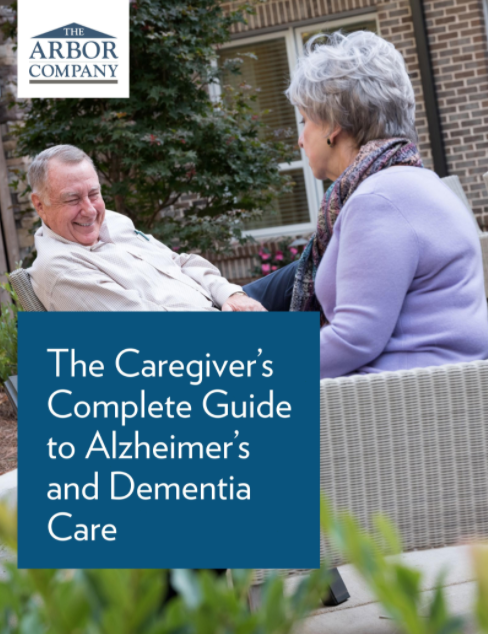Effective Dementia Care Techniques for a Better Top Quality of Life
In the world of dementia care, the execution of effective techniques is vital for improving the top quality of life for both people influenced by the condition and their caretakers. Recognizing the distinctive phases of dementia permits for customized treatments that attend to the developing needs of patients-- from advertising cognitive involvement in the onset to ensuring dignity in late-stage treatment. The relevance of communication methods and a supportive environment can not be overemphasized. What particular methods can be embraced to cultivate an atmosphere of concern and link throughout this difficult journey?
Comprehending Mental Deterioration Stages

In the very early stage, people may experience light amnesia and trouble with familiar tasks. Care strategies must concentrate on preserving independence and giving cognitive excitement. The middle phase is identified by increased complication, difficulty recognizing liked ones, and impaired judgment. Throughout this stage, caretakers must implement organized routines and make certain a risk-free setting. Finally, in the late stage, individuals may lose the ability to need and communicate assistance with everyday activities. Here, compassionate treatment is important, emphasizing comfort and self-respect.
Identifying these stages allows caregivers to adapt their methods and give support that lines up with the individual's present demands, ultimately assisting in far better monitoring of the problem and enhancing the general caregiving experience. Recognizing dementia stages is consequently a fundamental aspect of effective dementia care.
Interaction Methods
Effective interaction is a vital part of mental deterioration care, particularly as the illness advances via its various phases. As cognitive abilities decline, it becomes necessary to adapt interaction strategies to meet the demands of individuals with dementia. Utilizing clear, simple language is important; caregivers should stay clear of complicated sentences and jargon, deciding rather for uncomplicated, succinct expressions.
Non-verbal interaction plays a just as considerable role. Faces, gestures, and intonation can share warmth and understanding, often enhancing spoken messages. Maintaining eye contact and an open pose fosters a feeling of connection and security, motivating individuals with dementia to engage more fully in discussions.
It is additionally advantageous to be individual and enable enough time for actions. Individuals might need additional time to procedure info and formulate their ideas. If comprehension appears lacking., repeating or rephrasing inquiries might be needed.
Lastly, focusing on the individual's passions and individual background can assist in extra meaningful interactions. Taking part in acquainted subjects can stimulate favorable memories and feelings, further enhancing the interaction experience (memory care charlotte). By using these methods, caregivers can substantially boost the top quality of communications, advertising self-respect and regard for people living with dementia
Creating a Safe Setting
Developing a secure environment for people with dementia is crucial to advertising their wellness and independence. A properly designed room can considerably minimize the threats of accidents and improve the high quality of life for those affected by this condition.
Lighting plays an essential function also; using natural light wherever feasible and incorporating night lights can assist individuals browse their surroundings securely. In addition, classifying spaces and essential objects can aid memory and positioning, minimizing confusion and anxiousness.
It is likewise vital to create a familiar environment by personalizing the area with pictures or cherished items, which can evoke favorable memories and a sense of belonging.
Including furniture that is both comfortable and practical adds to an encouraging atmosphere, permitting individuals to participate in day-to-day activities with simplicity. Ultimately, a risk-free environment not just safeguards versus physical threats but likewise cultivates a sense of protection, which is essential for the psychological well-being of those dealing with dementia.
Involving Tasks and Routines
Engaging tasks Recommended Reading and organized regimens are essential parts in the care of individuals with mental deterioration, as they promote cognitive feature, psychological security, and social communication. These tasks must be customized to the person's interests, capacities, and phase of cognitive decrease. charlotte care home. Simple, recurring tasks such as gardening, crafts and arts, or food preparation can provide significant involvement, allowing people to use their abilities while fostering a feeling of success
Developing an everyday routine helps produce a predictable environment, which can decrease anxiousness and complication. This structure can include marked times for dishes, tasks, and rest, making certain a well balanced technique to life. Integrating social communications into these regimens, such as group tasks or checking out family, additional boosts emotional wellness and battles feelings of seclusion.
In addition, physical activities, such as walking or dancing, not only promote physical health and wellness but likewise stimulate psychological involvement. Urging participation in area occasions or support system can give added opportunities for socialization. Overall, the integration of structured routines and interesting tasks is crucial in improving the top quality of life for people with dementia, fostering independence and dignity while addressing their one-of-a-kind demands.
Supporting Caretaker Well-Being
Taking care of individuals with mental deterioration can be a requiring and psychologically tiring experience, making it vital to focus on the wellness of caretakers. Caregivers often encounter high degrees of anxiety, stress and anxiety, and physical exhaustion, which can cause exhaustion if not attended to appropriately. To support their well-being, it is vital to execute a complex technique.
First, providing caregivers with accessibility to education and learning and sources can empower them with techniques to manage day-to-day difficulties. Support system, both in-person and online, supply a system for sharing experiences, promoting a sense of community, and reducing sensations of seclusion. Furthermore, reprieve treatment solutions allow caregivers to take essential breaks, allowing them time to recharge and go to to their own wellness demands.
Moreover, encouraging caretakers to take part in self-care techniques-- such as regular exercise, healthy and balanced eating, and mindfulness-- can considerably boost their durability. Promoting open communication regarding their sensations and obstacles with relative or specialists additionally helps minimize psychological problems.
Conclusion
Finally, effective dementia treatment techniques incorporate an extensive understanding of the illness's phases, the implementation of clear interaction techniques, the facility of a secure atmosphere, and the promotion of interesting tasks and structured regimens. Furthermore, focusing on the wellness of caretakers is vital to sustaining top quality care. By incorporating these approaches, the total top quality of life for people with dementia can be dramatically boosted, fostering a supportive environment that advertises dignity and psychological health.
In the realm of mental deterioration care, the execution of reliable strategies is important for boosting the quality of life for index both individuals influenced Clicking Here by the illness and their caregivers. By using these methods, caretakers can dramatically improve the quality of interactions, promoting dignity and regard for individuals living with mental deterioration.

Caring for people with dementia can be a requiring and emotionally exhausting experience, making it crucial to focus on the health of caretakers.